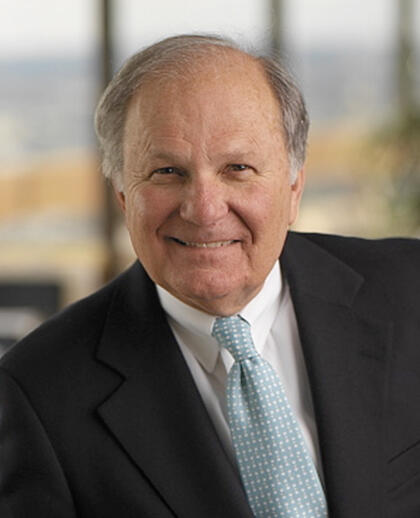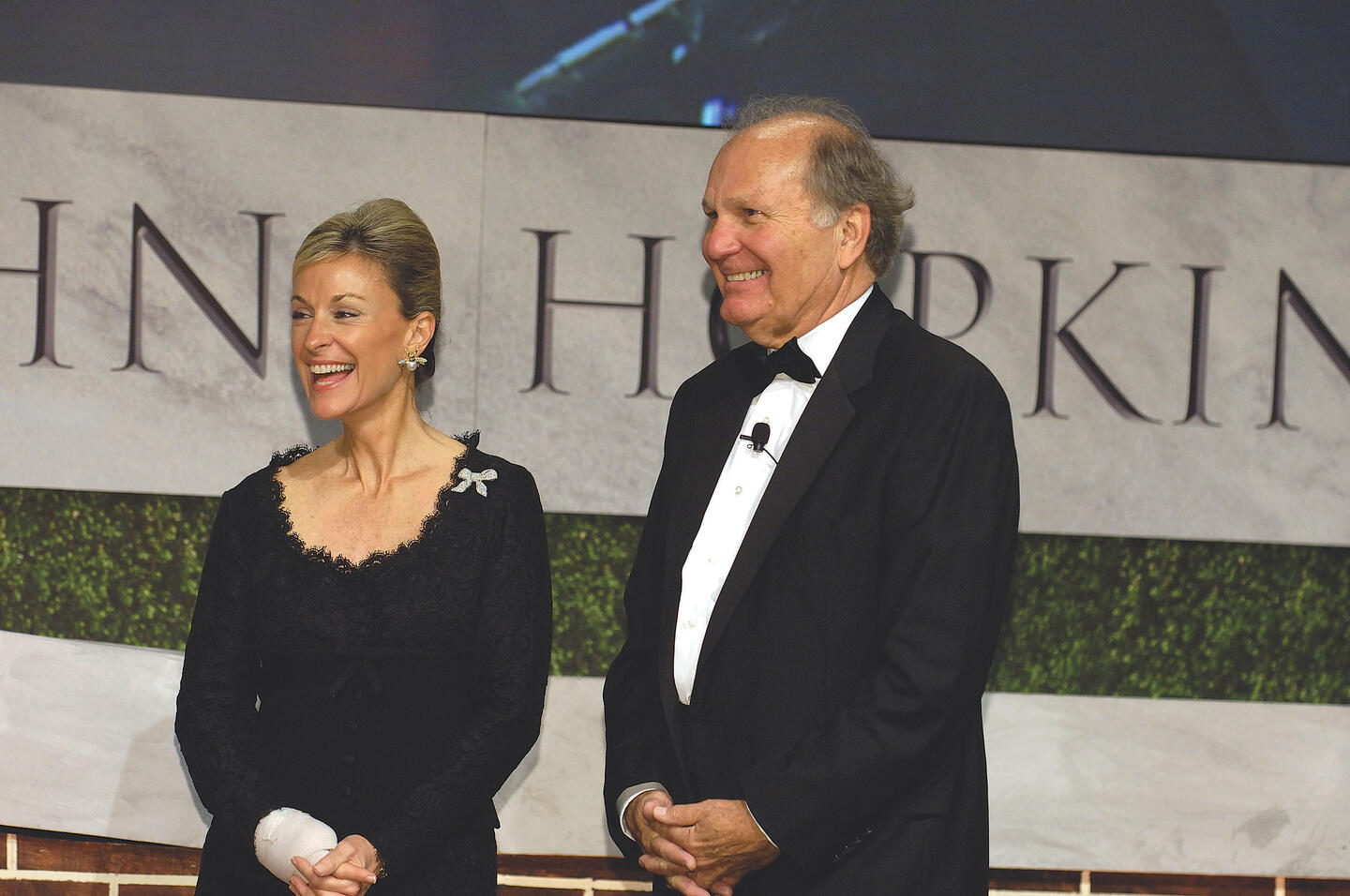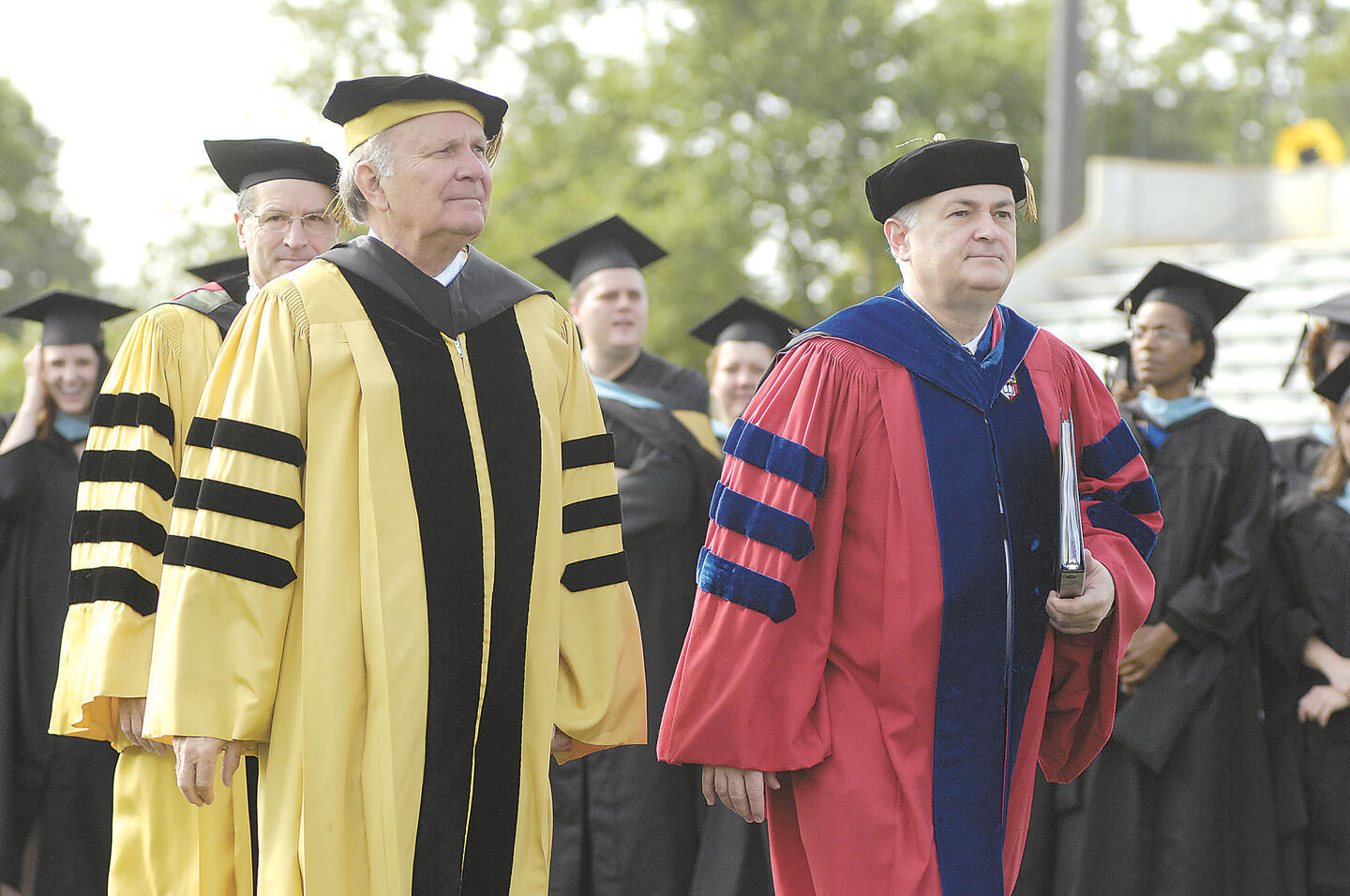Raymond A. "Chip" Mason, a pioneering financier who built Baltimore-based investment firm Legg Mason into a global leader in the field and who spent decades as a member of the boards of Johns Hopkins University and Medicine, died Friday in Naples, Florida. He was 88.

Image caption: Raymond A. "Chip" Mason
Mason founded a small stock brokerage in Newport News, Virginia, in 1962 at the age of 25, soon after graduating from the College of William & Mary. His firm, Mason and Company, merged with Legg and Company in 1970, a move that brought Mason to Baltimore. Over the years, through a series of strategic acquisitions and decisions, Mason transformed Legg Mason from a regional brokerage into a leading and widely respected global asset management company. Mason retired in 2007 after 46 years as chairman, president, and CEO.
At Johns Hopkins, Mason served as a member of the university's board of trustees from 1987 to 2007, including serving as the board's 14th chair from 2002 to 2007. He also served for many years as a trustee of Johns Hopkins Medicine and played an important role in the evolution of unified leadership at the institution. Mason chaired both the university board's investment committee and Johns Hopkins Medicine's finance committee.
Mason and his wife, Rand, made a significant donation for the construction of Mason Hall on the university's Homewood campus. The building, dedicated in 2007, is prominently situated on the Decker Quadrangle and serves as a front door to campus. It is home to JHU's Office of Undergraduate Admissions and the starting point for campus tours for prospective students.
Speaking of Johns Hopkins in a 2001 interview with The News-Letter, shortly after being selected as board chair, Mason said: "It is, I'd say, arguably, the most important thing in the city and state. If my goal is to be helpful to this region, this is the institution that is making the biggest impact."
Mason received an honorary degree from the university in 2008.
"I was deeply saddened to learn of the passing of Raymond 'Chip' Mason," JHU President Ron Daniels said in a statement. "A strategic and visionary leader in global financial management, Chip brought his exceptional capacity for cultivating and sustaining successful organizations to his leadership as chair of the Johns Hopkins University board of trustees. At a pivotal time in our institution's history, Chip helped knit Johns Hopkins University, Medicine, and Health System ever closer together, laying the foundation for its future success. Each day as I pass Mason Hall—the university's front door for undergraduates—I am reminded of Chip's commitment to Johns Hopkins, higher education, and our shared hometown. Our thoughts are with his wife Rand and his entire family at this difficult moment."

Image caption: Rand and Chip Mason at an October 2007 gala marking the formal naming of Decker Quadrangle and Mason Hall on the Homewood campus
Image credit: Jay Van Rensselaer, Will Kirk, and Norman Barker
As a business leader, Mason was widely recognized for his innovative growth strategies and his impeccable ethical standard. His "no chalk" mantra—that one should never get close enough to ethical lines to get chalk on their shoes—became shorthand for the standard of integrity that was a cornerstone of Legg Mason's culture under Mason's leadership. In 2004, CBS MarketWatch named him CEO of the Year, for rewarding investors with significant returns and "steering clear of major scandals that rocked Wall Street and the mutual-fund industry."
Mason also played an important role as a Baltimore civic leader, quietly encouraging other major institutions to remain rooted in the city and championing K-12 education, among other causes. Mason chaired the United Way of Central Maryland campaign, the Maryland Business Roundtable for Education, the Greater Baltimore Committee, and the Archdiocese of Baltimore's Partners in Excellence program, which he co-founded to provide scholarships for Baltimore City students to attend area Catholic schools. He also served on the boards of the Baltimore Museum of Art and the National Aquarium in Baltimore and, as a member of the Maryland Stadium Authority in the 1980s, helped negotiate the deal to build Camden Yards, the downtown home of the Baltimore Orioles.
Mason was born in Lynchburg, Virginia, and spent much of his childhood in the steel town of Bethlehem, Pennsylvania. He was a proud alumnus of William & Mary, graduating in 1959 with a bachelor's degree in economics. In the late 1960s, he was instrumental in helping establish a business school at William & Mary, which in 2005 named the Raymond A. Mason School of Business in his honor.
Active in professional and nonprofit organizations, Mason chaired the Securities Industry Association in 1986, the Board of Governors of the National Association of Securities Dealers from 1974–1975, and the Regional Firms Committee of the New York Stock Exchange from 1983–1988.
Mason is a member of the Maryland Business Hall of Fame, was an inaugural inductee into The Baltimore Sun's Business and Civic Hall of Fame in 2016, and received The Daily Record's Icon Award in 2019. In 2007, he was honored with the Maryland Governor's International Leadership Award.
Mason is survived by his wife, Rand, six children and stepchildren—Carter Mason, Paige Mason Littleton, Morgan Mason, Pamela Mason, Pike Howard, and Hayward Howard—and several grandchildren.

Image caption: Chip Mason, left, and then Provost Steven Knapp, at Commencement in May 2007
Image credit: Will Kirk / Johns Hopkins University
Posted in University News
Tagged obituaries, board of trustees







